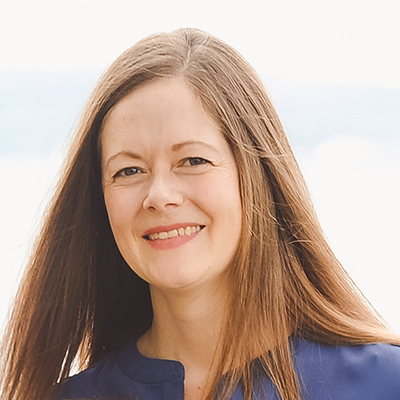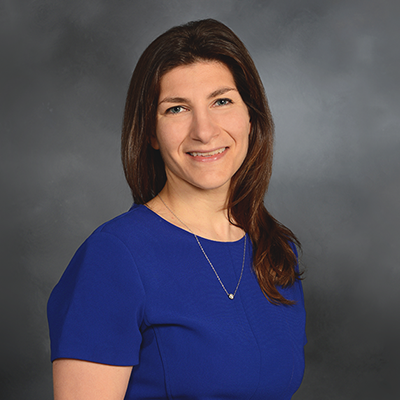Elevating the work of Cornell social scientists via funding throughout the research lifecycle.
Applications for the Fall CCSS Grant Preparation Funds round are due April 15.
The application form asks for:
- External funding opportunity, planned date of submission (must be within 18 months of receiving funds), and anticipated budget amount of external proposal.
- An uploaded document that contains the following:
- Project description: A brief overview of the project as well as a discussion of why the project team and proposed research are likely to receive the targeted external funding (<=500 words); If you are proposing to use these funds to support multiple eligible external proposals, this section may exceed 500 words)
- Budget Narrative/Justification: Explain why each budgeted item is necessary and how this funding will increase the success of your external proposal. Be sure to explain how the funds will support the administrative portion of the proposal. Expenses may include, but are not limited to, hiring a project manager, hiring an administrative assistant for the project, hiring a grant-writing consultant, arranging visits with a funding agency, and other administrative and logistical costs associated with developing and submitting the grant proposal. For questions about allowable expenses, reach out to ccss_progcoord@cornell.edu.
- Budget: Provide a detailed budget including when expenses will be incurred
Eligibility Requirements
- The project team must include at least three co-principal investigators, one of whom must assume the role of contact PI.
- Contact PI and at least one other team member must come from CCSS member colleges or schools (CAS, BPP, CALS, CHE, CIS, ILR, JCB, ENG).
- Contact PI will serve as the liaison between CCSS and the project team, is responsible for ensuring that the external grant is successfully submitted, and will complete required reporting steps as indicated by CCSS.
- Research teams that include junior faculty members are encouraged.
- All PIs must meet University PI eligibility requirements.
- Evidence of a record of collaborative work among team members will be viewed favorably. This can be demonstrated by co-authored papers and/or jointly funded grants, as well as other scientific interactions (e.g., regular meetings).
- CCSS recognizes that an investigator from outside of Cornell might bring a unique set of skills or knowledge to a Cornell-based team. If the team chooses to include a faculty member(s) from another institution, they should discuss why this individual brings unique contributions that cannot be found at Cornell.
- All awardees are required to submit the identified proposal for competitive review within 18 months of initiating the CCSS grant.
If your external proposal does not meet the above criteria, see if you are eligible for a CCSS Accelerated Research Grant.
If an immediate opportunity presents itself, email about the possibility of off-cycle review.
Please email CCSS with any questions.
Building a Cornell Center for Strengthening Information Ecosystems
Clair Wardle (Agriculture and Life Sciences)
Lee Humphreys (Agriculture and Life Sciences)
Mor Naaman (Cornell Tech), David Scales (Weill Cornell)
Alexios Mantzarlis (Director, Security, Trust, and Safety Initiative)
The proposed Center for Strengthening Information Ecosystems would connect, coordinate, and elevate existing programs rather than duplicate them. Acting as a networked hub, it would unify work on democracy and technology, communication, law and policy, health, and social behavior across Cornell’s campuses.
By bridging computational science, social science, and law with stakeholder and community engagement, the Center would develop auditing tools for emerging technologies, policy frameworks, and models for community resilience. It would attract new external funding beyond this potential Knight Foundation Center Grant, recruit cross-disciplinary scholars and students, and establish Cornell as a national leader in integrative, applied research on information ecosystems.
Building an AI-Ready Workforce: Integrating K–12, Postsecondary, and Workforce Systems for the Age of AI
Rene Kizilcec (Computing and Information Science)
Steven Jackson (Information Science and Science and Technology Studies)
JR Keller (Industrial Labor Relations)
Rachel Slama (Information Science)
Artificial intelligence is rapidly transforming classrooms, training programs, and workplaces. While AI tools offer new efficiencies and opportunities, they also risk undermining critical thinking, learner agency, and long-term skill development if deployed without care. To address these challenges, a cross-campus Cornell team—Steve Jackson, J.R. Keller, René Kizilcec, and Rachel Slama—is advancing two complementary efforts that position Cornell as a national leader in the future of learning and work: sustaining Cornell’s National Tutoring Observatory (NTO) and launching a new AI-Ready Workforce Initiative.
Play for All: Advancing Research and Funding Opportunities for Play and Play Environments to Support Children’s Healthy Development
Janet Loebach (Human Ecology)
Laura Bellows (Human Ecology)
Kim Kopko (Bronfenbrenner Center for Translational Research)
Play for All is a proposed multidisciplinary research initiative to be established at Cornell. The aim of the Play for All Project is to support opportunities for child-led, developmentally-supportive outdoor play for children in all communities and of all abilities. The project also aims to advance evidence on the role of play and inclusive play environments on children’s development, learning and well-being. Another key mandate of the initiative is to translate research evidence and program evaluation into resources and actionable guidance to help schools and communities provide Play for All. The Play for All initiative aims to position Cornell as an international leader in reshaping how play is understood, valued, and supported, for all children in all communities.
Towards a National Infrastructure of Federated Private Computation Spaces
Sara Emery (Agriculture and Life Sciences)
Steven Wolf (Natural Resources and the Environment), Hakim Weatherspoon (Computer Science)
Renata Ivanek (Population Medicine and Diagnostic Sciences)
Immanuel Trummer (Computer Science)
This proposal addresses one of the most pressing challenges at the intersection of digital agriculture, artificial intelligence (AI), and data infrastructure: enabling trustworthy, privacy-preserving, and scalable use of agricultural data for innovation, productivity, and sustainability. ‘Towards a National Infrastructure of Federated Private Computation Spaces’ (PCS), is a framework that will support the development of co-created, domain-specific governance frameworks and FAIR (Findable, Accessible, Interoperable, Reusable) repositories with user-defined privacy levels and interoperability standards. In an era where digitization and corporate interests increasingly shape agricultural landscapes, farmers face growing concerns over data privacy and sovereignty, leading to reluctance in sharing data with private entities and governments. Our proposal responds to these challenges by advocating for a transparent data repository co-designed with user-centric governance standards. Such infrastructure builds trust and ensures stability amidst the risks posed by finance-driven agricultural platformitization.
Human-Focused AI-Supported Communication
Cristian Danescu-Niculescu-Mizil, Associate Professor of Information Science, Lead PI
Natalie Bazarova, Professor of Communication, Co-PI
Mor Naaman, Professor of Information Science, Cornell Tech, Co-PI
This project will develop a socio-technical framework for responsible AI-assisted communication—based on integrating novel computational foundations with communication theory and human-centered design—to provide long-term benefits for individuals and society.
Applications for the Fall CCSS Accelerated Research Grants round are due April 15.
The application form asks for:
- External funding opportunity, planned date of submission (must be within 12 months of receiving funds), and anticipated budget amount of external proposal.
- An uploaded document that contains the following:
- Project: One paragraph providing a brief overview of the project and connection to the targeted external funding
- Plan: Explanation of how the funding will increase the success of your external proposal(s) (<500 words)
- Budget: Please provide a budget and budget justification for how you will use the funding (up to $35k) to support your time and/or the creation of specific outputs designed to increase the likelihood of obtaining the external grant support.
| Application Due Date | Anticipated Decision Date |
| October 15 | November 15 |
| April 15 | May 15 |
If an immediate opportunity presents itself, email about the possibility of off-cycle review.
Please email CCSS with any questions.
There are three qualifying scenarios for the Accelerated Research Grant. You will be asked to identify which qualifying scenario fits your project in the application.
- You've been awarded Phase 1 of a multi-phase grant, such as an NSF Convergence Accelerator Grant or NIAAA Exploratory & Developmental Grants and are preparing your Phase 2 submission.
- You have an existing external grant and you're submitting a proposal to renew or continue the grant or a new grant proposal that builds directly on the currently funded project.
- You submitted an external grant proposal (>$50,000) that did not receive funding and you are revising the proposal to resubmit.
Time is often the number one challenge researchers face when preparing ambitious external funding proposals. This funding can be used to support faculty time in different ways, including, but not limited to, hiring an RA, hiring a teaching assistant, or hiring grant-writing support. Accelerated Research Grant funding can also be allocated for specific outputs linked directly to the pending grant proposal. This could include, but is not limited to, publications, websites, pilot studies, or making existing work open access. These outputs should increase the likelihood of external funding. These funds are not intended to seed new research projects; for new projects, please see CCSS Seed Grants.
Next round of applications will open in Spring 2026.
Have the following information ready to paste into the application portal:
- Name, title, departmental and college affiliation
- Co-PIs (if you have a Co-PI, you must specify a lead PI)
- Proposal title
- Total dollar amount requested
- Provide your plan for data replication and archiving or a brief statement explaining why archiving is not possible (see the CCSS data archiving policy here)
- Pre-registration of experiments, if applicable
- IRB attestation if human subjects will be used
- Resubmission: Is this proposal a resubmission to the CCSS? If yes, please discuss your revisions in the proposal narrative.
- Proposal narrative that is double spaced and no more than five pages in length (see guidelines below). The narrative should include replication details (see above).
- Budget and budget justification (see guidelines below)
- CV for the PI, as well as CVs for up to two additional investigators (maximum three pages each)
Proposal narrative guidelines:
- Should not exceed five pages, should be double-spaced, 12-point font
- A one-paragraph “publication ready” abstract (45 words max.) for posting on the CCSS website if the project is funded.
- A comprehensive description of proposed activities and their significance, including details about the research design (if applicable)
- Data archiving/replicability plan or a brief statement explaining why archiving is not possible (see CCSS data archiving policy for more info)
- Plan of future activities with dates corresponding to major outputs (grant submission deadlines, book draft due date, publication draft submission goals)
- Plans for pursuing additional funding (including a link to RFP), if any
Budget justification guidelines:
- Total funding amount requested
- List of the individual expenses and a brief explanation of each expense
- The budget justification does not count against the five-page-long narrative length limit
- The budget can include replication expenses
Optional:
- A brief bibliography (under one page)
- A brief sample survey or portion of a survey instrument may be included as an appendix and will not count against the narrative page length
For more information, see the frequently asked questions tab. If you have a question, contact socialsciences@cornell.edu.
Funding
The maximum small grant award is $12,000. Faculty can only be part of one CCSS seed grant submission per round. Faculty receiving a previous CCSS grant research award are eligible for another research award two years after their most recent award.
CCSS approval is required for the principal investigator to reallocate more than 25 percent of the funds at any point after the award is issued; please contact socialsciences@cornell.edu. Funds not used within two years are returned to the CCSS for reallocation to other small grant awardees unless an extension is granted. In the event that the principal investigator resigns from Cornell, the remaining funds are to be returned to the CCSS.
The CCSS and the Office of the Vice President for Research and Innovation at Cornell University provide the funding for the CCSS grant program.
Data Archiving Policy
CCSS is committed to ensuring that research and data are open and available to support cumulative gains in social scientific knowledge. All CCSS-funded projects must provide a statement describing plans to archive data and/or replication materials in an appropriate and permanent archive, such as CCSS’s Data & Reproduction Archive, the Inter-university Consortium for Political and Social Research (ICPSR), the Roper Center for Public Opinion Research, or the Qualitative Data Repository (QDR), or a brief statement explaining why archiving is not possible. CCSS’s complete archiving and replication policy can be found here. We encourage applicants and grantees to consult with one of CCSS’s Data Archive Specialists, regarding any questions.
IRB
If your project will require IRB approval, you must receive approval before engaging in the research and provide it to your departmental finance liaison before drawing funds from your award.
Eligible activities
CCSS grants support direct research expenses. Examples include the costs of collecting data, participant incentives, traveling to and from research or training sites, data replication and archiving costs, meetings with collaborators or potential funders, undergraduate or hourly graduate research assistance (summer grad RA stipends are also acceptable) supporting the faculty project, and specialized hardware or software necessary to conduct the research.
Examples of expenses ineligible for a CCSS grant award are: publication fees or other costs associated with disseminating research (e.g., conference travel), faculty and/or Cornell staff salaries, travel costs for caregivers (for such funding, see here), general-use hardware or software, and training (such as on an econometric technique). CCSS does not support undergraduate or graduate student research projects with faculty CCSS grant funds. If funding is allocated to support graduate research assistants, the faculty member’s role in the project must be specified.
Review Process
Each research project application with a budget above $5,000 is reviewed by three Cornell social scientists who have submitted within the same round, but are not in the applicant’s department. Every applicant will be asked to review 3-5 applications. The reviews must be completed by the deadline, or CCSS will disqualify the reviewing candidate’s application for funds. CCSS will internally review proposals with budgets below $5,000.
Acknowledging CCSS
For projects selected for funding, please acknowledge the Cornell Center for Social Sciences in any presentations or publications resulting from the project. We recommend using the phrase, “This research was supported by a Cornell Center for Social Sciences Grant.” Please also let the CCSS know when papers are accepted and/or publicly available so we can help publicize them.
Questions
Contact CCSS if you have questions about any of these policies.
Is my research considered social science?
By social science research, we tend to take a broad approach to social science. We typically support research that is eligible for funding from social science directorates of the major federal funding agencies. At the National Science Foundation, for example, this includes the Directorate for Education and Human Resources, the Directorate for Social and Behavioral Sciences, and their subsidiary organizations (e.g., Behavioral and Cognitive Sciences, Social and Economic Sciences, Law and Social Sciences, Human Resource Development, etc.).
CCSS also funds social scientific research eligible for funding by other federal agencies. For example, the National Institutes of Health and the Department of Energy support social science research. In general, CCSS follows the federal government’s lead, and any social science research project eligible for funding from a federal agency is also suitable for CCSS support. CCSS strongly encourages participation by social scientists housed in multidisciplinary and interdisciplinary departments across Cornell.
Finally, we support social scientists engaging in collaborative research with non-social scientists, as long as the social scientist has a lead role in the project and the project has a significant social science component likely to lead to publications in peer-reviewed social science journals or other outlets. For example, CCSS would consider funding a social scientist who is co-leading, along with a geneticist, a study of the relationship between gene activation and social environments. It would not support a geneticist who is the sole investigator in a study of the relationship between gene activation and social environments.
What constitutes a strong budget justification?
A detailed budget justification gives the review committee a clear idea of what the funds will support and includes sources for cost estimates. For example, list the model of equipment or software to be purchased and its cost from a particular vendor, like Buy.com. How much does a ticket cost on Expedia or from AAA for car rental or air travel when you estimate you will be in the field? How many hours and at what rate per hour do you plan to hire a research assistant, based on what precedent?
At the time of submission of the proposal, does the proposed experiment already have to have IRB approval?
No.
Do all the research project’s team members have to be at Cornell?
No.
Can the research project include co-PIs, post-docs, or graduate assistants who are not faculty members?
The lead PI must be a Cornell PI-eligible faculty member. However, the entire research team does not have to be on Cornell’s faculty. The team can include non-tenure-track research associates, post-docs, and graduate students participating as collaborators and/or hired research assistants. However, CCSS grants cannot be used for tuition, stipends, or student fees on graduate assistantship lines. Grants cannot be used for graduate student research projects or dissertation projects. If funding is allocated to support graduate research assistants, the faculty member’s role in the project must be specified.
If awarded a CCSS grant, when could I expect to receive the funding?
The PI is asked to complete an award transfer form. Once the account is established and the award transform form is submitted to CCSS, awards are typically transferred by the end of the month. CCSS small grant awards must be transferred by the end of the fiscal year.
What do I do if the budget needs to be reallocated after receiving my award?
PIs need CCSS approval to reallocate more than 25% of the funds at any point after funding. Please contact socialsciences@cornell.edu to request a reallocation and include the project title, award year, account number, account balance, and reason for the requested reallocation.
How do I apply for a no-cost extension?
Grant awards have a term date of roughly two years. If you have not been able to complete your research by your award’s term date, you may request a no-cost extension by filling out this brief CCSS Grant Extension Form. If the PI does not request an extension, funds not used within two years are returned to CCSS for reallocation to subsequent grant awardees. If you have questions, please contact socialsciences@cornell.edu.
How does the CCSS evaluate proposals?
Projects requesting over $5,000 are reviewed by three peer scholars from the same application round; whenever possible, reviewers will be from outside the applicant’s department. Each proposal is evaluated with the following criteria: quality of social science scholarship (including theory and methodology), the importance of the core ideas and whether they are innovative, whether the work is likely to inspire future research, and whether the budget is appropriate. We also consider whether the research design is methodologically sound, the likelihood of the research resulting in publication in peer-reviewed journals, and whether the project is likely to obtain external funding at some point. We fund conferences of interest to social scientists across the university when the budget appears justified and primarily supports Cornell social science faculty members. Projects requesting under $5,000 in funding are reviewed internally.
If I have been funded by the CCSS before, how long should I wait before reapplying?
Faculty who have previously received a CCSS grant as a lead PI can reapply for funding after a two-year wait. In other words, if a PI received CCSS funding in Fall 2021, the faculty member may reapply in Fall 2023. Exceptions to this are that prior conference grant awardees can submit a research grant proposal within the two-year wait period, and responses to calls for research on special topics may not be subject to the two-year rule. Research grant awardees must wait the full two years before submitting another research grant proposal. CCSS Faculty Fellowships are not subject to the two-year rule.
Can I submit one proposal as the PI and serve on another project as a co-PI?
Effective for the Fall 2024 round: no, each faculty member can only be part of one CCSS grant proposal per cycle.
Can CCSS Grants be used to fund graduate student research?
Not at this time.
Please see the Overview section for more information on the seed grants program. Please direct questions to CCSS_progcoord@cornell.edu.
Fall 2025
College of Agriculture and Life Sciences (CALS)
Perceptions of prescribed burns in urban natural areas
Aaron Sexton — School of Integrative Plant Sciences
College of Arts and Sciences (A&S)
The New Gay Science: Tracing the Social Lives of Sexuality Statistics from Diagnosis to Demographic
Jamie Budnick — Sociology
Twice A Stranger: China, The United States, and Trans-Pacific Travelers
Mara Du — History
Facilitating Early Communicative Development through a Museum-Based Parenting Intervention
Michael Goldstein — Psychology
When Tradition Travels: Customary Institutions in Pakistan's Largest City
Sarah Thompson — Government
Online/Offline Differences in Survey Treatment Effectiveness: Can Chatbots Bridge the Divide?
Amanda Weiss — Government
How norms and morality constrain what we imagine
Jordan Wylie — Psychology
Bowers College of Computing and Information Science
Understanding Privacy Boundaries in Wireless Sensing of Vital Signs by Smart Devices
Rajalakshmi Nandakumar — Information Science
College of Engineering
Bridging the Conversational AI Gap: Synthetic Dataset Generation for Engineering Education Dialogue
Alexandra Werth — Biomedical Engineering
College of Human Ecology (CHE)
Why Do Adolescents Eat What They Eat? A Qualitative Study of Food Practices in Bangladesh
John Hoddinott — Economics, Nutritional Sciences
Learning by Design: Investigating impact of child-informed schoolground re-design on student outcomes
Janet Loebach — Human Centered Design
School of Industrial and Labor Relations (ILR)
Safety at Work: Long-Term Trends and the Role of Institutions
Elio Nimier-David — Economics
The Right to Disconnect
Jason Sockin — Economics
SC Johnson College of Business
Free-Riding and Firms' Innovation in Low-Income Countries: Evidence from Burundi
Luisa Cefalà — Applied Economics and Management
Financial Infidelity Across Cultures
Emily Garbinsky — Johnson Graduate School of Management
Fresh Produce Prescription Programs: Impacts on Diet Quality, Health Outcomes, and Cost-Effectiveness
Miguel I. Gomez — Applied Economics and Management
Framing Effect on Text Comprehension and Decision-making
Stijn van Osselaer — Johnson Graduate School of Management
College of Veterinary Medicine
Using Public Safety to Solve Social Problems: Local Politics, Devolution & the Case of Homelessness
Charley Willison — Public and Ecosystem Health
Spring 2025
College of Agriculture and Life Sciences (CALS)
Evaluating the effectiveness of decision support tools to improve conservation outcomes for pollinators (Research Award)
Laura Melissa Guzman — Entomology
Indigenous African Feminisms (Research Award)
Wunpini Fatimata Mohammed — Communication
How Poverty and Criminal Justice System Entanglement Shape Political Agency (Research Award)
Danny Parker — Communication
Parents are not alright: Understanding off- and online contributions to parents' information needs (Research Award)
Claire Wardle — Communication
College of Architecture, Art, and Planning (AAP)
Space for Others: An Interactive Exhibition at Milan Design Week (Conference Award)
Leighton Beaman — Human Centered Design (AAP & Human Ecology)
Transport Affordability and Automobile Debt in the United States (Research Award)
Nicholas Klein — City and Regional Planning
College of Arts and Sciences (A&S)
Black Politics during the "Nadir" (Research Award)
David Bateman — Government (A&S and Brooks)
The Great Entanglement: Sino-Steppe History in the Longue Durée (Conference Award)
Mara Du — History
If It Ain't Broke(r), Don't Fix It? The Welfare Effects of Intermediation in Employer-sponsored Insurance Markets (Research Award)
Anran Li — Economics
The hidden costs of self-reporting good deeds and how to effectively encourage altruism (Research Award)
David Pizarro — Psychology
Do different forms of arousal have similar effects on perception and memory? (Research Award)
Khena Swallow — Psychology
A New Measurement Tool for Environmental Behavior Related to Climate Change (Research Award)
Charles Trautmann — Psychology
Bowers College of Computing and Information Science (CIS)
Large Language Models, Self-Presentation, and Organizational Evaluation (Research Award)
AJ Alvero — Information Science & Sociology (CIS & Brooks)
Strengthening Public Discourse: Rigorous Statistical Validation of Public Policy Claims (Research Award)
Sainyam Galhotra — Computer Science
Auditing Ableist and Intersectional Biases in AI-Driven Hiring through Multi-Agent Interactions (Research Award)
Aditya Vashistha — Information Science
Brooks School of Public Policy
The Tradeoffs of Transparency: Measuring Inequality When Subjects Are Told They Are in an Experiment (Research Award)
Amanda Agan — Economics
Home Is Where the Bias Is: Testing for Self-Serving Bias in Housing Markets (Research Award)
Nicolas Bottan — Economics
Investigating the Impact of Precarious Employment on Cognitive Health Among Latino Workers (Research Award)
Matt Hall — Sociology
Rubber Agroforestry for Peacebuilding, Food Security, and Resilience in Post-Conflict Colombia (Research Award)
Stephen Morreale — Public Policy & Natural Resources (Brooks & CALS)
College of Human Ecology (CHE)
Space for Others: An Interactive Exhibition at Milan Design Week (Research Award)
Leighton Beaman — Human Centered Design (Human Ecology & AAP)
Promoting Interoceptive Awareness with On-skin Biofeedback Interfaces for Enhanced Social Interaction (Research Award)
Cindy Hsin-Liu Kao — Human Centered Design
Is Perfect Really Good? The fragilities of normative AI, and opportunities in interpretive AI (Research Award)
Sang Leigh — Human Centered Design
The Timing of Social Connection: Examining Daily Social Engagement Patterns in Older Adults (Research Award)
Anthony Ong — Human Development and Psychology
Industrial and Labor Relations (ILR School)
Organizational Interventions to Alleviate Burnout and Promote Well-Being (Research Award)
Duanyi Yang — Labor Relations, Law, and History
Cornell Law School
Young Scholar Workshop: Empirical Legal Studies in the Sinophone Region (Conference Award)
Yun-chien Chang — Law
SC Johnson College of Business
Attention in Conjoint Analysis: Integrating Models in Cognitive Psychology with Quantitative Marketing (Research Award)
Geoffrey Fisher — Applied Economics and Management
Using Uneven Loyalty Reward Shares to Optimize Referrals (Research Award)
Alexander Fulmer — Hotel Administration
Differentiating Two Loyalty Motives: A Leadership Perspective (Research Award)
Angus Hildreth — Johnson Graduate School of Management
The Coauthor Project: Advancing Transparency and Inclusivity in Academic Publishing (Research Award)
Michael Maffie — Hotel Administration
Employer quality and information frictions in spot labor markets: Evidence from India (Research Award)
Heather Schofield — Johnson Graduate School of Management
The Cancelation Gap: Do We Actually Know What Causes Someone to Be Canceled? (Research Award)
Ovul Sezer — Organizational Behavior
Using a Non-Native (vs. Native) Language Increases Socially Responsible Behavior (Research Award)
Kaitlin Woolley — Johnson Graduate School of Management
College of Veterinary Medicine
Reducing Bias When Assessing Behavior Change After Interventions to Improve Diet Quality Among Rural Residents (Research Award)
Karla Hanson — Public Health and Ecosystem Health
Catalyzing Planetary and Climate Change Health Education, Research, and Resiliency with KCMUCo (Research Award)
Jeanne Moseley — Public and Ecosystem Health
Use the links below to view previous grant winners through our Past Grantee & Fellow Database:
COVID-19 Grants
Social science played a crucial role in understanding the crisis of COVID-19 and future crises. Please view the list of COVID-19 Grant Awardees on the Past Grantees & Fellows page to learn more about the projects funded for this special grant topic.
Incarceration’s Impact on Families
View past grantees and special topics below, including details for three projects that received funding from CCSS and had a tremendous impact on furthering research in critical areas.
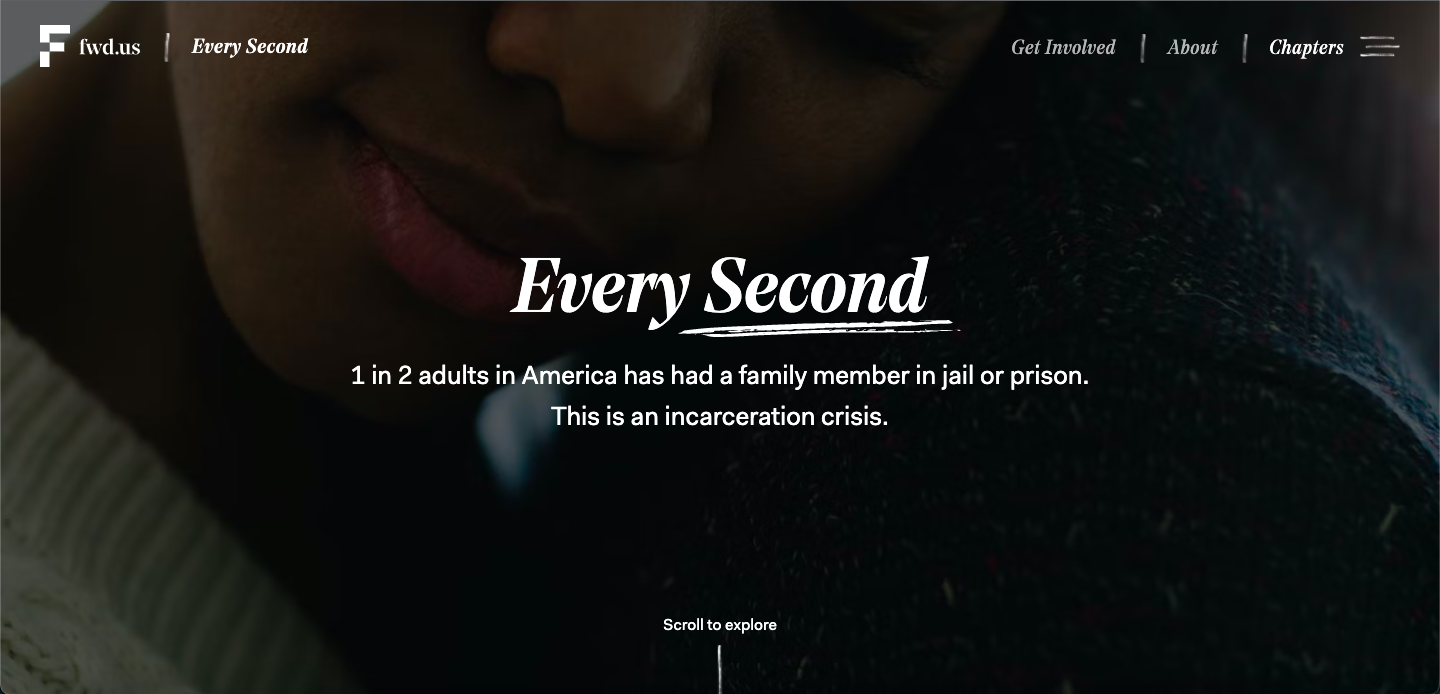
An interdisciplinary team from Policy Analysis and Management, Government, and Sociology studied the level and extent to which incarceration affects families in the US. In addition to producing the first estimates of family-level contact with prisons and jails (at the national level, state level, and by demographic group), this research considered criminal justice contact beyond incarceration, current as well as historical family incarceration, and types or levels of family incarceration. Findings include the staggering revelation that nearly half of all people living in the United States have experienced incarceration in their family. One in seven adults has had a close family member spend more than one year in jail or prison—over 35 million people. This data, broken down by race, gender, and family income, provide policymakers, service providers, employers, and researchers with a much more nuanced and detailed understanding of how incarceration impacts American society.
Teaching Kids to be Safe Online
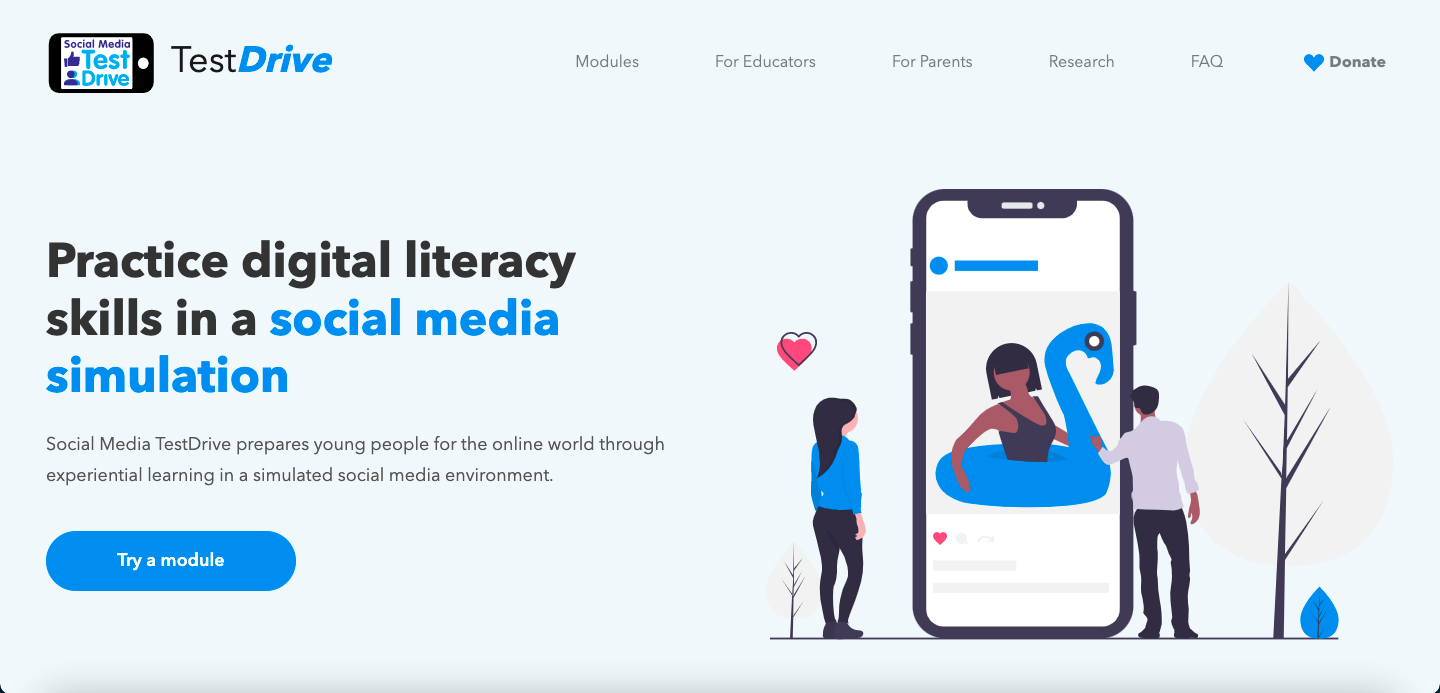
Social Media TestDrive is an interactive educational platform created by researchers in Cornell's Social Media Lab in collaboration with Common Sense Education and with input from educators in Cornell’s Cooperative Extension and 4-H. TestDrive is an educational program that enables young people to learn and practice digital citizenship skills through a social media simulation. Like a driving simulator for young people learning to drive a car for the first time, TestDrive provides a simulated experience of realistic digital dilemmas and scenarios that young people may encounter as they enter the social media world. Each module is designed to teach a specific social media skill, such as managing privacy settings, smart self-presentation, upstanding to cyberbullying, and news literacy. TestDrive looks and feels like a real social media site, but all the content on the site has been created for instructional purposes. Young people interact with the content through instructions that lead them to build new knowledge and skills, allowing them to practice critical social media skills without worrying about negative consequences. The TestDrive platform is now publicly available to kids, parents, and educators--with 40,000 users worldwide so far--and offers an important tool to teach youth to become prosocial, productive members of the digital world.
Digitizing the Roots of Racist Policing
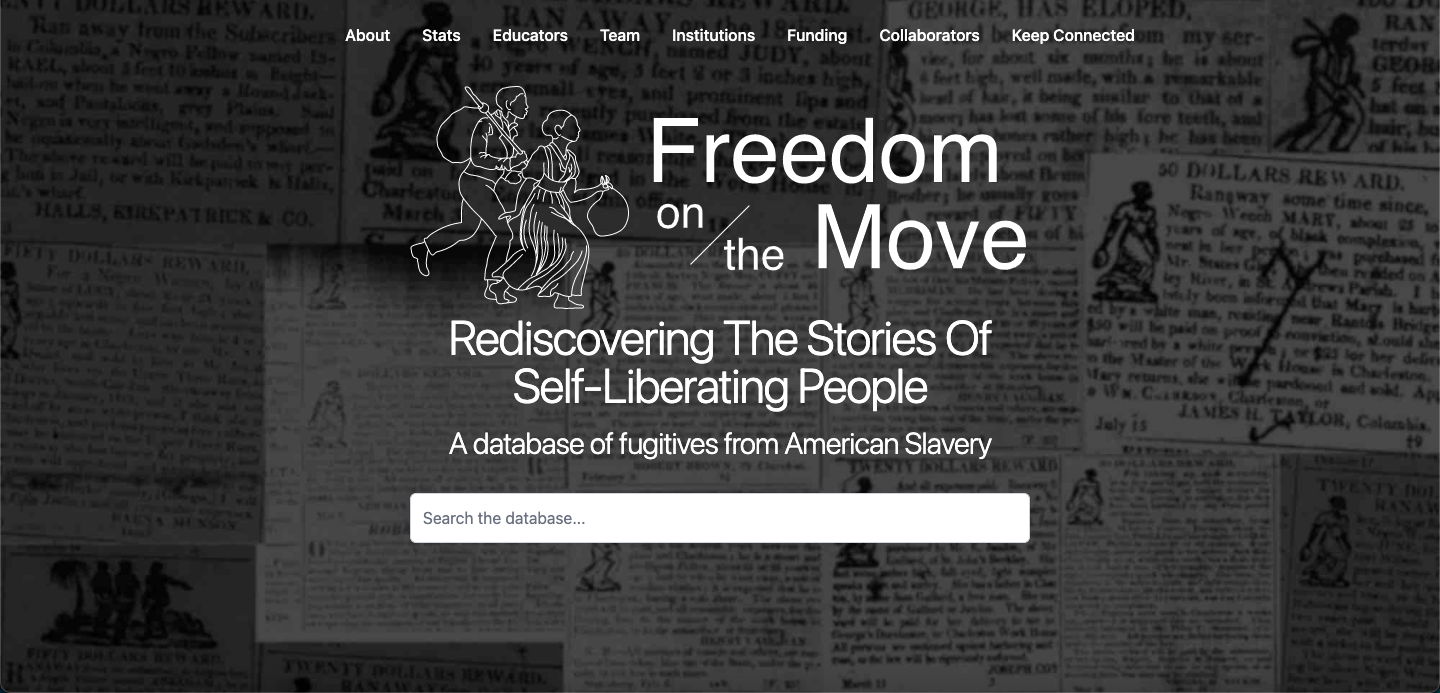
An interdisciplinary team led by a Cornell historian with collaborators from universities in five states is building an ever-expanding digitized database of fugitives from American slavery. Freedom on the Move (FOTM) is an effort to collect, transcribe, and analyze all of the existing advertisements placed by North American enslavers attempting to coerce and capture self-liberating African and African American people. Taken collectively, these runaway ads, with their details of individual lives and agency, constitute a rare source of information about the experiences and resistance of enslaved people that does not appear elsewhere in the historical record. The free, open-source site has been designed so users can transcribe the text of an advertisement, contributing to the trove of information available for scholars, genealogists, and historians. Edward Baptist, the Lead PI on the project, notes that many will see in the surveillance of Africans and African Americans, including the pursuit of runaways, the historical roots of today’s policing of African Americans. In the modern era, both professional and volunteer attempts to police Black movements seem to continue the long tradition of stopping, questioning, reporting, disciplining, and seizing Africans and African Americans—actions for which ordinary white citizens were rewarded for doing under slavery, from the 1600s to 1865.
2024 Track One Awards: Pilot Research Grants
This track is for eligible faculty from the 2024 cohort who will gather data and submit their NIH grant proposal after February 2025.
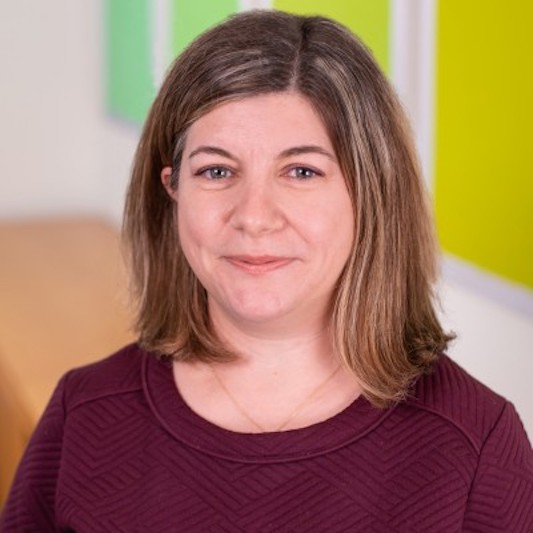
Fatma Baytar, Human Centered Design
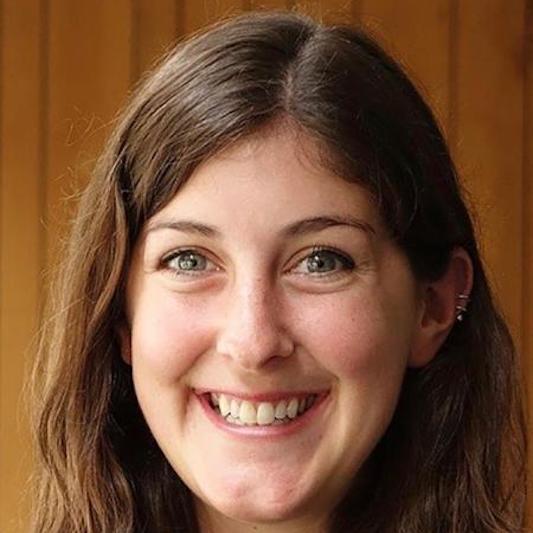
Jenna Wells, Psychology

Chuan Liao, Global Development
2024 Track Two Awards: Grant Development Fellowships
This track is for 2024 cohort members who will submit their NIH grant proposal on or before February 2025.
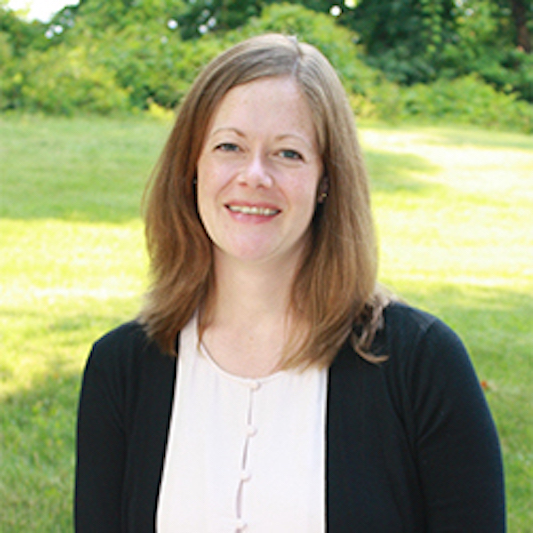
Kathryn Fiorella, Public and Ecosystem Health
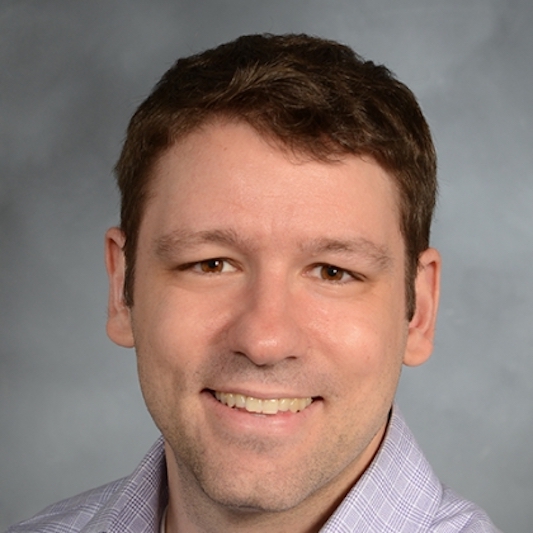
David Scales, Internal Medicine

So-Yeon Yoon, Human Centered Design
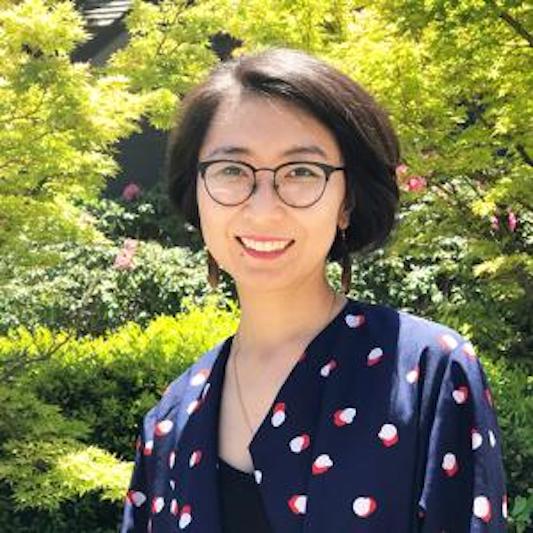
Wenfei Xu, City and Regional Planning
2023 Track One Awards: Pilot Research Grants
This track is for eligible faculty from the 2023 cohort who will gather data and submit their NIH grant proposal after February 2024.
Laura Bellows, Nutritional Sciences
Aditya Vashistha, Information Science
2023 Track Two Awards: Grant Development Fellowships
This track is for 2023 cohort members who will submit their NIH grant proposal on or before February 2024.
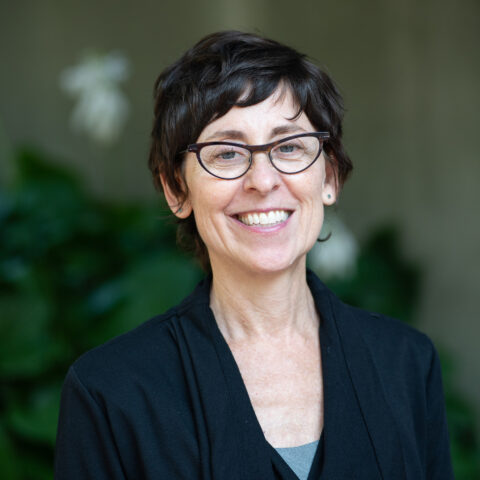
Maureen Waller, Brooks School of Public Policy, Sociology
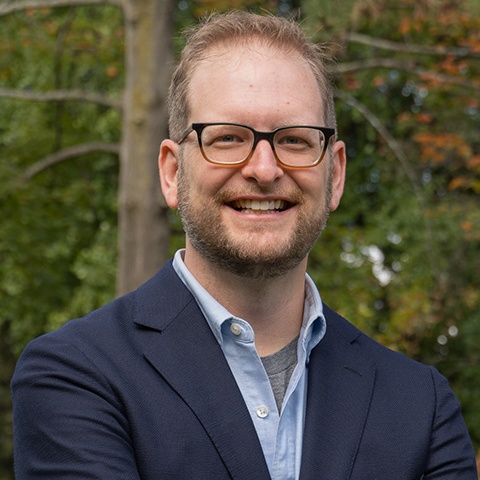
Peter Rich, Brooks School of Public Policy, Sociology
Roger Figueroa, Nutritional Sciences
2022 Track One Awards: Pilot Research Grants
This track is for eligible faculty from the 2022 cohort who will gather data and submit their NIH grant proposal after February 2023.
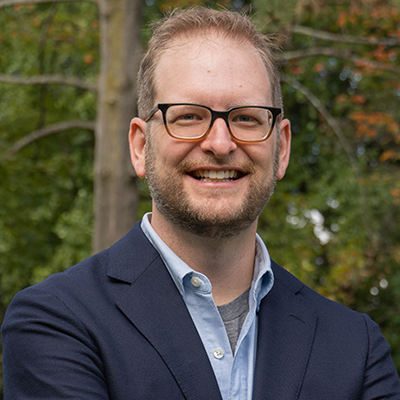
Peter Rich, Brooks School of Public Policy, Sociology
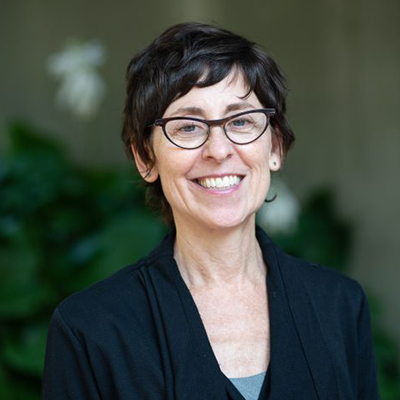
Maureen Waller, Brooks School of Public Policy, Sociology
2022 Track Two Awards: Grant Development Fellowships
This track is for 2022 cohort members who will submit their NIH grant proposal on or before February 2023.
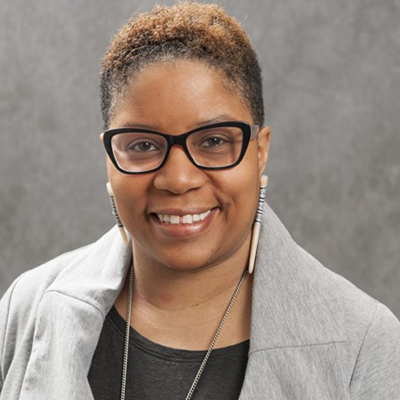
Angela Odoms-Young, Division of Nutritional Sciences
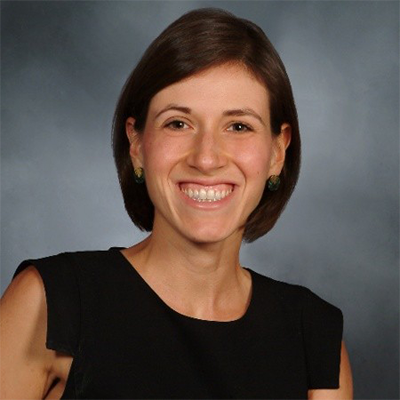
Laura Pinheiro, Internal Medicine
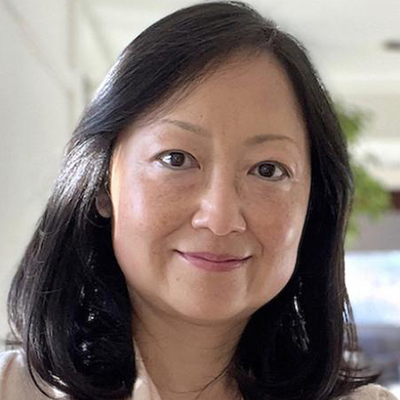
Qi Wang, Psychology

Matthew Wilkens, Information Science
Did your research benefit from a Cornell Center for Social Sciences Grant?
Please acknowledge CCSS with the following language when publicizing or presenting your research results: “This research was supported by a Cornell Center for Social Sciences Grant.”

